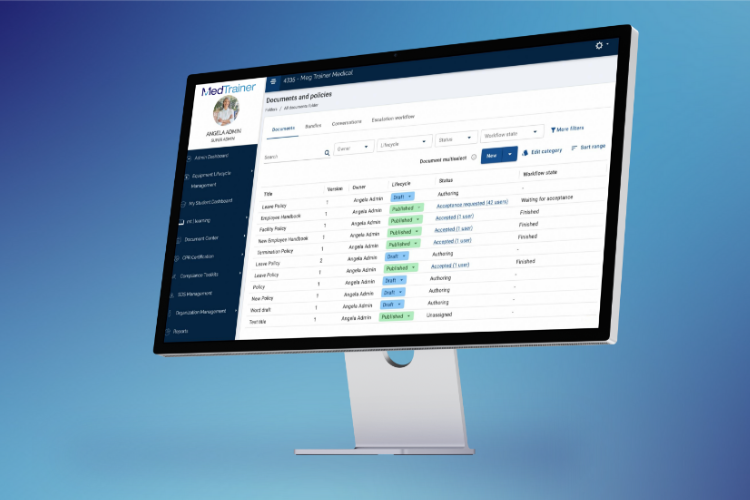What types of healthcare facilities are required by the government to have a compliance program? Like most regulations, it depends on the size and type of healthcare facility, the services it provides, and the patients it serves.
In this blog, I’ll outline what types of healthcare facilities are required by the government to have a compliance program and why compliance is crucial for both healthcare organizations and the agencies that support them.
What is Healthcare Compliance?
Healthcare compliance is the process of following the laws, regulations, and ethical standards that govern the healthcare industry. It ensures that healthcare organizations and professionals adhere to guidelines that protect patient safety, maintain data privacy, and uphold the integrity of medical practices. Compliance is essential for operating within the legal framework, providing high-quality care, and maintaining the trust of patients and the community.
Compliance is Mandatory for Federal Programs
One constant is that organizations and facilities that participate in federal healthcare programs, such as Medicare and Medicaid, must have a compliance program. In these cases, the Centers for Medicare and Medicaid Services (CMS) require compliance programs from the following facilities:
- Hospitals: General acute care and specialty hospitals.
- Nursing Homes: Skilled nursing facilities, long-term care facilities, and other types of nursing homes.
- Home Health Agencies: Agencies that provide in-home healthcare services
- Hospices: End-of-life providers, including inpatient, outpatient, and in-home services
- Physician Practices: Physician practices that bill Medicare and Medicaid insurance require compliance programs. Check the CMS guidelines and local resources for specific laws surrounding physician practices, as they can vary.
- Pharmacies: Retail and specialty pharmacies that dispense prescription medications and accept government programs.
- Laboratories: Clinical laboratories that perform tests covered by Medicare or Medicaid.
- Ambulatory Surgical Centers: Outpatient surgical centers require compliance programs as they are often affiliated with larger healthcare organizations or physician practices.
There’s No One-Size-Fits-All Requirement
It’s important to note that the specifics of compliance program requirements can vary by state and change due to updates in regulations and laws. Healthcare facilities should consult with legal counsel and regulatory authorities to help monitor and maintain compliance standards. Additionally, compliance programs address a wide range of potential issues, including fraud, waste, and abuse. Many of these issues aren’t specific to healthcare, so they are likely required regardless of the type of healthcare facility.
Is a Compliance Program Useful If It’s Not Mandated?
My answer: Yes. Compliance programs are important for several reasons with patient health and safety at the top of the list. Below are a few other reasons:
- Quality of Care: Compliance programs include protocols and guidelines to maintain and improve the quality of patient care. They can help healthcare providers adhere to best practices and standards and thus, potentially enhance patient outcomes and safety.
- Patient Data Protection: The Health Insurance Portability and Accountability Act (HIPAA) requires healthcare facilities to have robust data protection measures for maintaining patient trust and health information and avoiding data breaches.
- Ethical Conduct: Compliance programs help to establish guidelines on honesty, integrity, and ethical behavior for employees to follow in all interactions, including patient care and financial transactions.
- Corporate Responsibility: Following compliance program standards demonstrates a commitment to responsible business practices and accountability.
- Improved Reputation: Patients are more likely to trust organizations that demonstrate a commitment to ethical and legal conduct.
Meet Government Requirements for Healthcare Compliance Programs
Technology can be very beneficial in creating a culture of compliance within your healthcare organization. An online learning management system makes training easy to complete and policies and procedures are easily accessible in one location. By using technology to systematically address compliance risks, healthcare organizations can foster a culture of accountability and help with the delivery of ethical, safe, and high-quality healthcare services.

Streamline your compliance with MedTrainer
